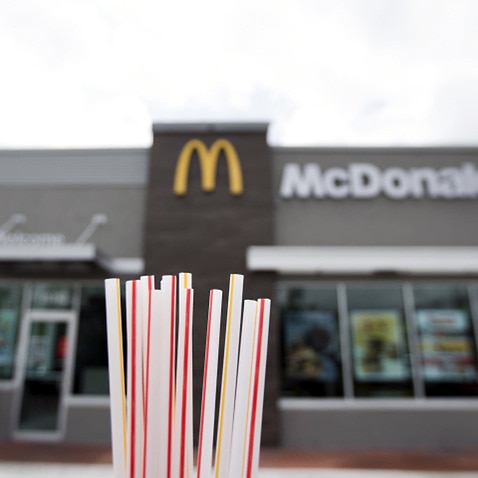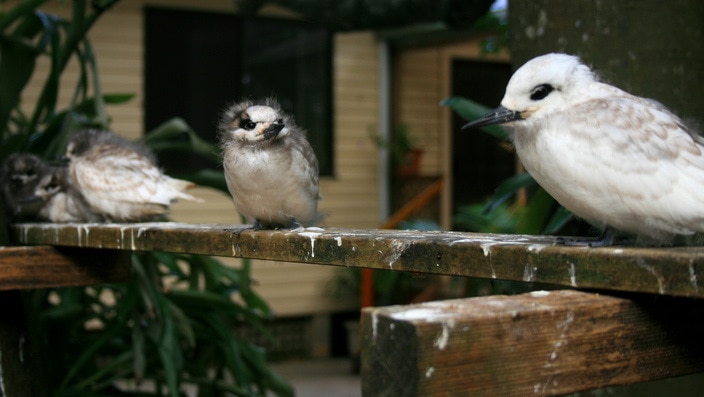Supermarket retailers Coles and Woolworths are slowly moving away from giving customers free single-use plastic bags at their stores in Victoria, NSW, WA and Queensland.
To ease the transition, both supermarket chains are supplying 15 cent reusable bags to customers for free until July 8.
Stores in ACT, South Australia and Tasmania have already moved away from single-use bags.
An expert on waste management said thinking that reusable plastic bags are always superior to single-use plastic bags is inaccurate.
“People think using a reusable is much better than the single-use disposable,” Dr Trevor Thornton from Deakin University told SBS News.
“But as was found when you do the sums: for example, papers bags you need to use three or four times before they are better on the environment [than a single-use plastic bag].”
A , led by RMIT’s Karli Verghese, found that the thicker reusable plastic bag had to be used at least 52 times to have a less harmful impact on the environment.
READ MORE

Dr Thornton said whether customers remember to actually bring their reusable bags to the supermarket affects the analysis of whether plastic bag alternatives are less harmful to the environment.
“But generally you need to use them quite a few more times, the numbers vary but they are up to the 60, 70, 80 times. Now that's also based on the fact that we use the single-use plastic bag only once,” he said.
“But most people will go to the supermarket, take their groceries inside and then use that plastic bag for rubbish or for a whole range of rubbish or other different purposes. So that then makes it more viable in terms of environmental impact.”
Environmental campaigner Jon Dee from the DoSomething charity disputes the 52 times figure cited in Verghese’s study.
He said the charity has done calculations and found that a reusable bag can be energy efficient compared to single-use bags when used between 10 and 25 times.
“A reusable bag can carry up to three plastic bags worth of shopping,” he told SBS News.
The other advantage of reusable bags, he adds, is they are less likely to be wind-borne, escaping landfill.
“I have yet to see a photo of a turtle or marine animal with a reusable bag inside it,” Jon Dee said.
A by the UK Environmental Agency found cotton bags needed to be reused at least 173 times to have a lower environmental footprint based on resource use, energy and greenhouse gas emissions.
Dr Thornton said the focus on plastic bags has eclipsed the issue of plastic packaging and the overall need to reduce consumption.
"We're swapping these single use plastic bags for 'gar bags' [garbage bags]. So people will be buying gar bags to put their rubbish in. So if you took a picture of the rubbish in landfill, it's a lot of single-use plastic bags. But tomorrow it is going to be plastic gar bags.
"We are not reducing what we consume, put it that way. And that is the message that needs to get out. We need to educate people more about reducing consumption as opposed to swapping from one type of bag to another type of bag."
‘Too slow to act’
Jon Dee said he is optimistic that shoppers will adjust to the change like they have in South Australia and in the Tasmanian town of Coles Bay, which went plastic bag free in 2003.
“The clampdown on single-use thin plastic bags really has actively encouraged people to take their reusable bag,” he said.
“I actually go around these states into communities, not just in capital cities, but go right out into remote and regional towns and I can tell you now people are taking their reusable bags every time they do their shopping,” he said.
“That is the norm now in South Australia.”
Mr Dee said some smaller corner stores have been violating the “spirit of the law” by giving away slightly thicker bags, which he said supports the case for a national ban on all free plastic bags.
“And that is something which I think needs to be clamped down on by the federal and state government by just banning the giving away of all free plastic bags."
READ MORE

He said since he started campaigning for a national ban 16 years ago, it is estimated over 100 billion plastic bags from retailers have ended up in Australia’s landfill.
“We've been far too slow in acting on it [getting rid of plastic waste].”
He said the environmental impact on wildlife is evident on the World Heritage-listed Lord Howe Island where plastic debris can be found.
“There are post-mortems of baby chicks on Lord Howe Island with over 100 pieces of plastic inside them - and that is totally unacceptable. When it gets to that point in one of our most pristine habitats, you know we have got a major problem on our hands.”

AAP
Calls for transparency from the big retailers
by business professor Gary Mortimer at the Queensland University of Technology has found that the major supermarket retailers Coles and Woolworths would save somewhere in the vicinity of $170 million a year by not providing shoppers with free plastic bags.
At the same time, the potential uptick in sales of 15 cent reusable plastic bags could amount to $71 million in gross profit.
Neither Coles nor Woolworths would provide information to SBS News on the savings expected to be made from the move away from single-use plastic bags.
A spokesperson for Woolworths said 3.2 billion single-use bags would no longer be produced annually, benefitting “our waterways, oceans and marine life”.
The spokesperson pointed to their bag alternatives saying the 99 cent ‘Bag for Good’ would be a “bag for life” - replaced for no cost once damaged, and with all proceeds going to the Junior Landcare grants program to care for coastal and bush areas.

Supplied
In April, Coles Managing Director John Durkan also of the decision to stop supplying free single-use plastic bags, saying “it’s the right thing to do for the environment”.
A spokesperson for Coles said it would be providing a ‘Community Bag’ costing between $1 and $3 and featuring designs from school children.
Between 10 and 30 cents from each bag sale will go to four charities: Clean Up Australia, Little Athletics, Guide Dogs Australia and SecondBite.
Both retailers said the 15 cent price of the reusable plastic bag covered the costs of manufacture.

Supplied
Following the reports of so-called , Dr Thornton said changing consumer behaviour would be aided by Coles and Woolworths being upfront about the business revenue expected from the move away from single-use bags.
“It's about honesty. The discussion recently about how much money the supermarkets might be making from the sale of these bags... well is that true, or is that not. And this is where the supermarkets should be on the front foot and letting everybody know.”
Jon Dee said having money funnelled back into environmental programs or charities is another way to smooth the transition.
READ MORE

“If you look at the UK or Irish example, money is going to environmental programs or charities. Coles and Woolworths should really be looking at some kind of transparency that shows where the money is going.
“How much are these bags costing, and showing us just how much is given to charity. If people are buying a 15 cent or 99 cent bag, they would like to know how much is that is actually going to charity? And that way you don't feel so bad if you forget a bag, and you have to buy one.”
A Senate into recycling released last month recommended the phasing out of single-use plastics by 2023.
Greens senator Peter Whish-Wilson said the focus should be on replacing plastic straws, coffee cups and takeaway containers with sustainable products.
“This is happening all around the world now because we realise what damage these plastics are doing when they make their way into our waterways and ultimately our oceans,” he .
Reuse, recycle
Jon Dee says for shoppers who have not yet made the transition, the period of adjustment will be shorter than people think.
“The people who are whingeing right now, they will get used to it in a very short space of time. And we know that when you have to pay for bags, it encourages people to get into that re-using habit.”
As for finding a new strategy to replace how single-use bags are used as bin liners and to pick up dog poo, Jon Dee has simple solutions.
READ MORE

For dog poo, a plastic bread bag can do the job.
"They tend to be thicker than plastic shopping bags, they tend to be longer as well, so they are easier to pick up the dog poo in and you can actually tie a knot in them,” Mr Dee said.
To prevent smelly bins, reusing your free community newspaper can solve the problem.
“When it comes to bin liners, frankly anything that is smelly in your bin should really be going into your compost. If you really do have to put food scraps into your bin, the simple way to deal with that is the way your grandparents used to deal with it.
“Lay out a sheet on the kitchen bench top, put the food item in the centre, and wrap it like fish and chips. And then put it in the bin. That was what we did growing up in the 1960s, we did not have plastic bags. We didn't have plastic bin liners back then. And guess what: society coped with it very easily.”

